10 Things First-Timers Always Mess Up In Vegas—3 Could Ruin Your Trip
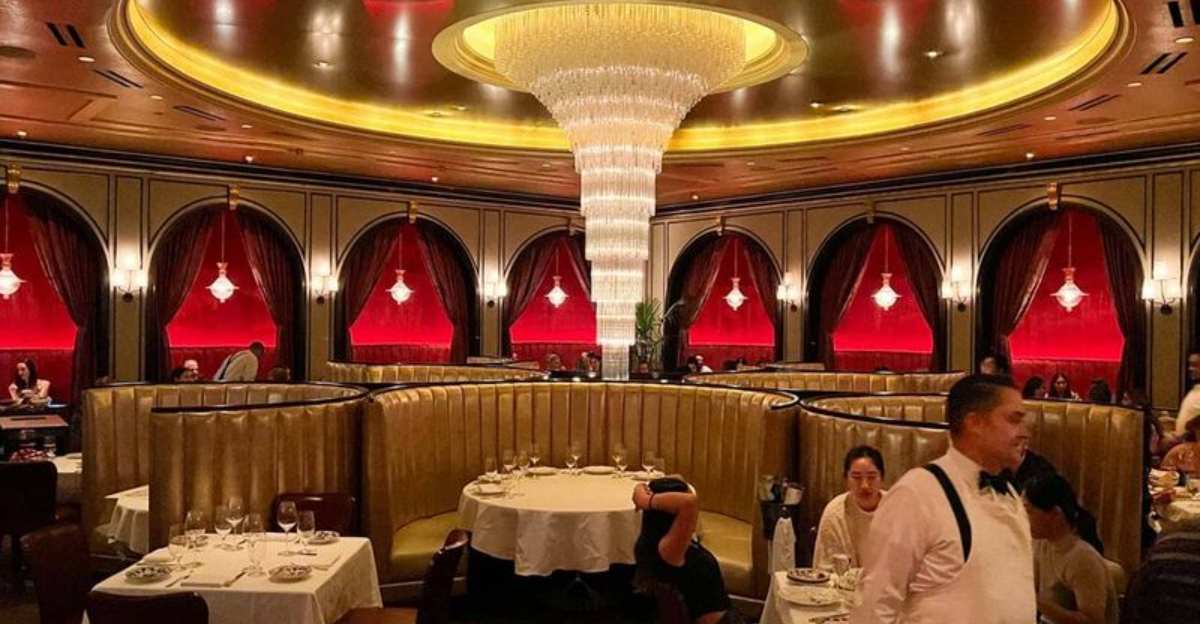
Las Vegas may sparkle with promise, but behind the neon lights lie pitfalls that catch many first-time visitors off guard. Think you’re just heading out for a little fun? One wrong move and that dream getaway can take a sharp left turn.
From underestimating resort fees to trusting those “free” club passes, some rookie mistakes are as common as slot machines in a casino. I’ve been there, watching tourists blow their budget before noon or walk the Strip in brand-new shoes (spoiler: not a good idea).
Before you roll the dice, learn what not to do in Vegas—and how to enjoy the city like a seasoned high roller. Ready to sidestep the headaches and make the most of your Sin City escape? Let’s dive in.
1. Ignoring Resort Fees
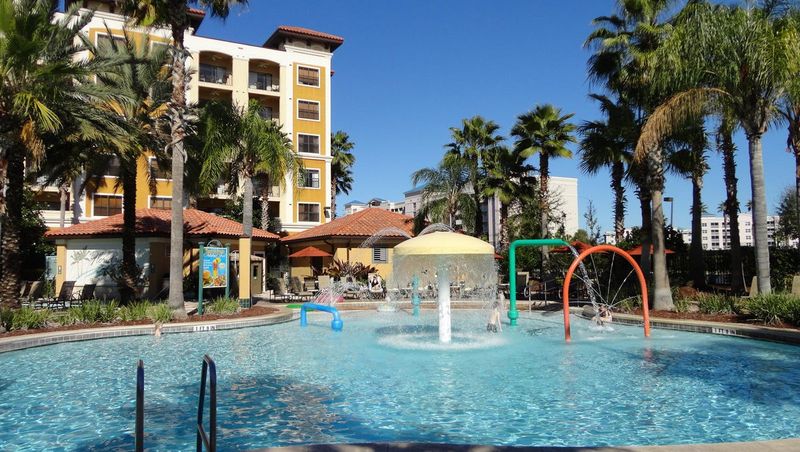
That amazing $89 hotel room? It’s actually going to cost you $150 after the dreaded resort fee gets tacked on. Vegas hotels have perfected the art of advertising low rates while hiding mandatory daily charges of $30-$45 per night.
These fees supposedly cover amenities like WiFi, gym access, and local calls – things you might never use. Smart travelers always check the fine print before booking and factor these unavoidable costs into their budget.
When comparing hotels, add the resort fee to the nightly rate for an honest comparison. Sometimes that luxury hotel ends up being only $20 more than the budget option once all fees are included!
2. Blowing the Budget Early (Trip Ruiner)
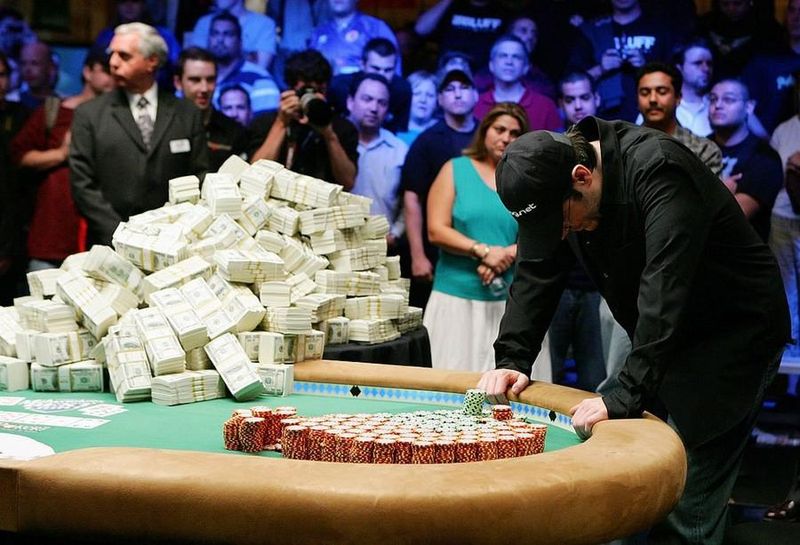
Nothing kills Vegas vibes faster than running out of money on day two of your five-day trip. First-timers often hit the tables hot, betting big right after check-in, only to spend the rest of their vacation as spectators.
Vegas is engineered to separate you from your cash quickly. The flashing lights, free drinks, and early wins create a false sense of luck that can empty wallets within hours.
Divide your gambling budget by the number of days you’re staying, and stick to that daily limit religiously. Keep your credit card locked in the room safe to avoid desperate decisions after losing your planned gambling money.
3. Walking the Entire Strip
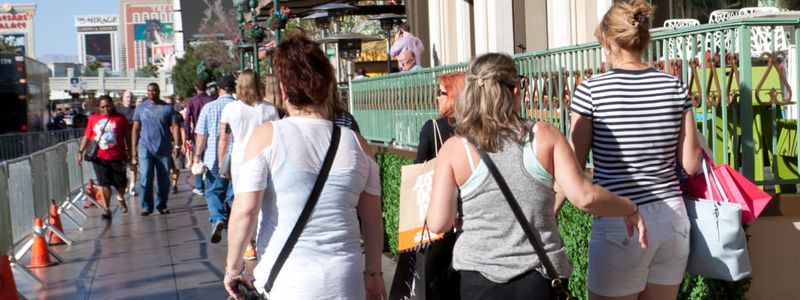
Vegas hotels are optical illusions. What looks a quick stroll away can actually be a sweaty two-mile trek. Many newcomers plan to “just walk down the Strip” without realizing the massive scale of these mega-resorts.
The distance from Mandalay Bay to the Stratosphere is over 4 miles! Add in crowded sidewalks, pedestrian bridges with stairs, and detours through casinos, and you’ve got a major hike on your hands.
Instead of hoofing it everywhere, use the Deuce bus for longer journeys or rideshares for quick hops. Your feet will thank you, and you’ll save hours of vacation time that could be better spent enjoying shows or poolside relaxation.
4. Booking Hotel Too Far
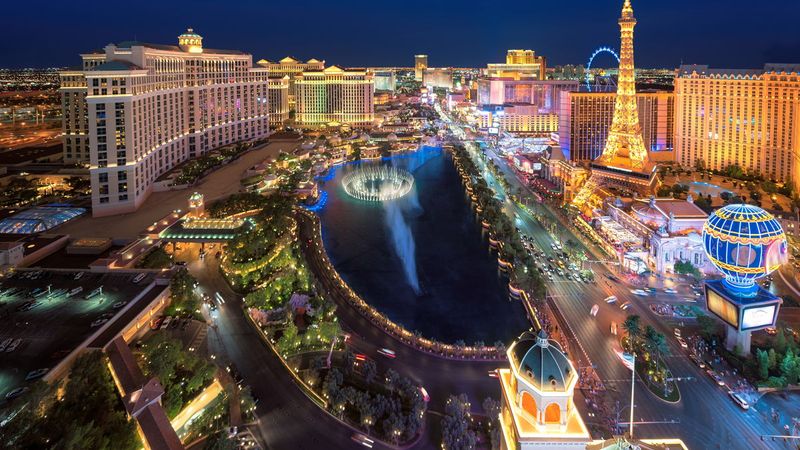
That off-Strip hotel deal might seem genius until you’re spending half your vacation in Ubers. Vegas newbies often book accommodations in Downtown or miles from the action to save money, not realizing the inconvenience it creates.
Traffic on Las Vegas Boulevard moves at a crawl during peak hours. What should be a quick 10-minute ride can stretch to 40 minutes on Friday night, with rideshare prices surging accordingly.
For first visits, paying extra to stay center-Strip (between Flamingo and Park MGM) puts you within walking distance of major attractions. The money you save on transportation and time wasted in transit makes the higher room rate worthwhile.
5. Forgetting to Hydrate

Vegas sits in the middle of a desert, where humidity hovers around 20% and summer temperatures regularly exceed 110°F. Your body loses moisture at an alarming rate without you even noticing.
Mix in free cocktails, air conditioning, and excitement, and you’ve got the perfect recipe for severe dehydration. Many tourists end up with splitting headaches, dizziness, or even in urgent care because they forgot to drink water.
Buy a refillable water bottle immediately upon arrival and carry it everywhere. Aim for at least 16 ounces every hour you’re awake. Those wild Vegas stories are much more fun to tell when you’re not telling them from a hospital bed!
6. Losing Your ID (Trip Ruiner)
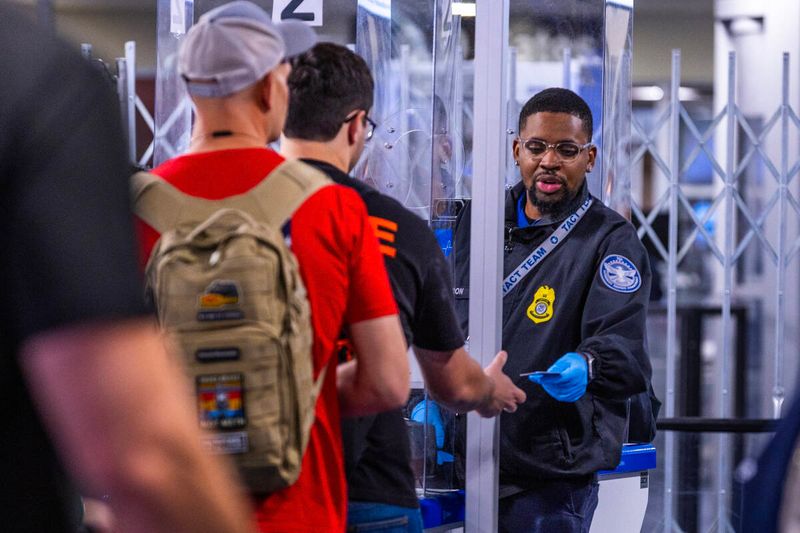
If there’s one item that can instantly derail your Vegas vacation, it’s losing your ID. Without proper identification, you can kiss gambling, clubbing, and even flying home goodbye.
Vegas pickpockets target distracted tourists, especially in crowded areas and nightclubs. Others simply leave IDs at bars after opening tabs or drop them while pulling out room keys.
Keep your ID in a secure front pocket or crossbody bag that stays attached to you. Take a clear photo of your license and passport before traveling, and email it to yourself as backup. Consider leaving your actual passport locked in your hotel safe and carrying just your driver’s license for daily adventures.
7. Misjudging Casino Minimums
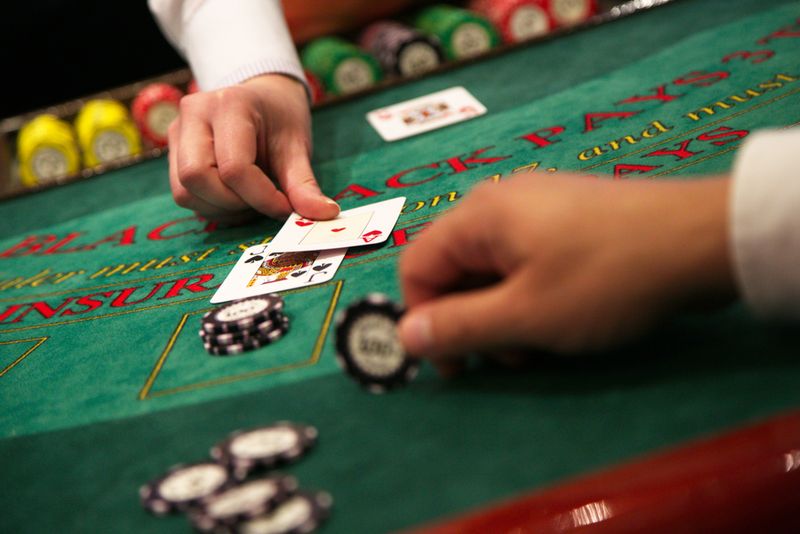
That $5 blackjack table you read about online? It doesn’t exist on Friday night. First-timers often arrive with budgets based on outdated information about table minimums, only to discover the cheapest blackjack game starts at $25 per hand.
Casino minimums fluctuate dramatically based on time, day, and demand. A Tuesday afternoon might offer plenty of $10 tables, while Saturday night could see minimums jump to $50 at the same casino.
If you’re on a tight budget, gamble during weekday mornings or afternoons when minimums drop. Downtown casinos and off-Strip locations like Ellis Island or Gold Coast consistently offer lower minimums than Strip properties. Remember that video poker and slots let you control your pace of play better than table games.
8. Wearing the Wrong Shoes
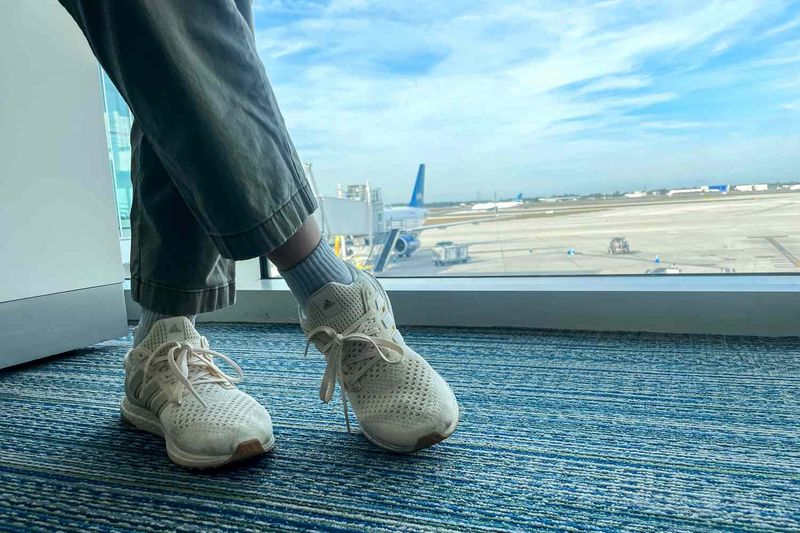
Those cute new heels or dress shoes might look great in photos, but they’ll torture you after hours of standing on casino floors and walking between resorts. Vegas requires more walking than most vacations – we’re talking 5-10 miles daily.
Casino floors offer no places to sit unless you’re actively gambling. Nightclub lines mean standing for hours, and even restaurant reservations often involve lengthy walks through resorts to reach your destination.
Pack comfortable, broken-in shoes for daytime adventures and save the fashion statements for short durations. Women should consider platform sneakers or block heels instead of stilettos for nights out. Many Vegas veterans bring shoe bags to switch footwear before and after clubs without returning to their rooms.
9. Drinking Too Fast

Free casino drinks create the perfect storm for Vegas first-timers. The cocktails come small but strong, served in quick succession if you’re tipping properly. Before you know it, your entire evening is ruined by unexpected intoxication.
Vegas drinking hits differently than at home. The dry desert air accelerates alcohol absorption, while the excitement and constant stimulation mask your body’s warning signs. Many tourists end up back in their rooms by 9pm instead of enjoying the night they planned.
Alternate each alcoholic drink with a full glass of water, and order food regularly to absorb the alcohol. Set drink limits before you start and stick to them. Remember that gambling decisions deteriorate rapidly after a few drinks – exactly what the casinos are counting on!
10. Trusting “Free” Promoters
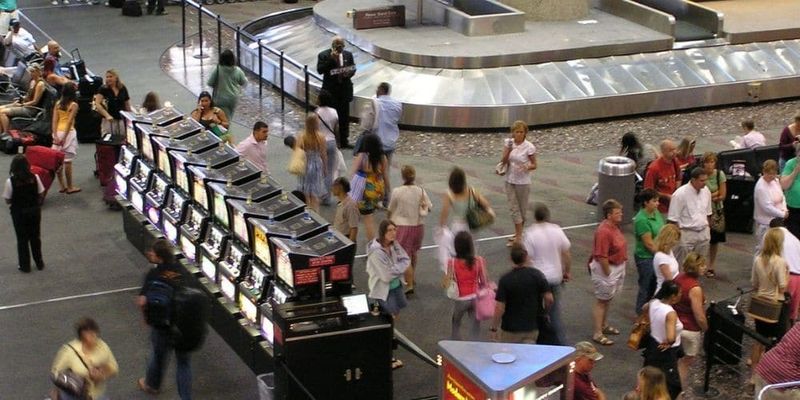
Those friendly guys handing out cards on the Strip aren’t doing it from the goodness of their hearts. Vegas sidewalks swarm with promoters offering “free” nightclub entry, discounted shows, or exclusive pool parties that sound too good to be true.
Following these promoters often leads to bait-and-switch scams, expensive cover charges that weren’t mentioned initially, or being abandoned at secondary-rate venues. Women might get free entry while men in the same group face steep charges after being led to a club.
Book nightlife directly through hotel concierges or official websites. If a deal seems suspiciously generous, it probably comes with hidden catches. Legitimate promoters exist, but they typically work through established channels, not by randomly approaching tourists on sidewalks.
11. Missing Your Flight Home (Trip Ruiner)
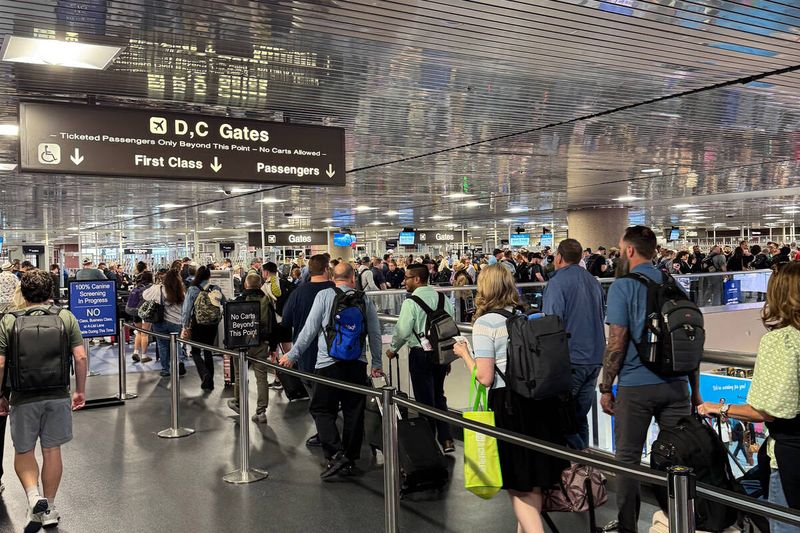
Vegas has a special way of making travelers miss their flights. The combination of late nights, lost track of time, and the mistaken belief that McCarran Airport is just minutes away creates a perfect storm of missed departures.
Sunday mornings see massive security lines as thousands of weekend warriors head home simultaneously. Rental car returns involve shuttles that add 30+ minutes to your airport journey. Strip traffic can turn a 15-minute drive into an hour-long ordeal.
Always allow three hours between leaving your hotel and flight departure, especially for Sunday or Monday morning flights. Set multiple alarms and arrange airport transportation the night before. The casino floor has no clocks for a reason – they want you to lose track of time!
12. Skipping Dinner Reservations
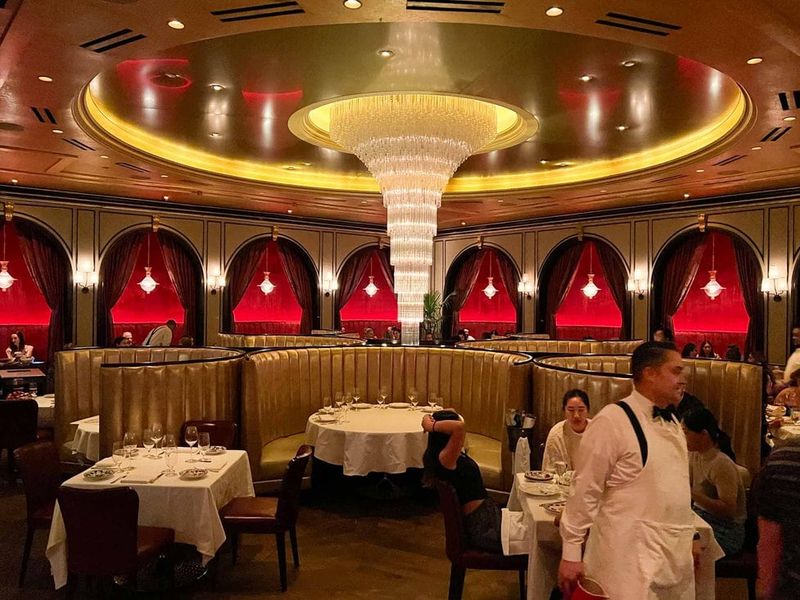
“We’ll just find somewhere to eat” are famous last words in Vegas. Popular restaurants on the Strip regularly book solid weeks in advance, especially on weekends and during conventions.
Hungry, tired tourists often end up waiting 90+ minutes for mediocre food or settling for overpriced food court options. Nothing kills a night’s momentum faster than wandering aimlessly looking for dinner at 8pm when everyone else had the same idea.
Make reservations for at least one nice dinner per day of your trip, even if you end up canceling some. Apps like OpenTable and Resy let you browse availability across multiple restaurants simultaneously. For spontaneous meals, eat during off-hours (5pm or after 9pm) to avoid the worst crowds.
13. Underestimating the Heat
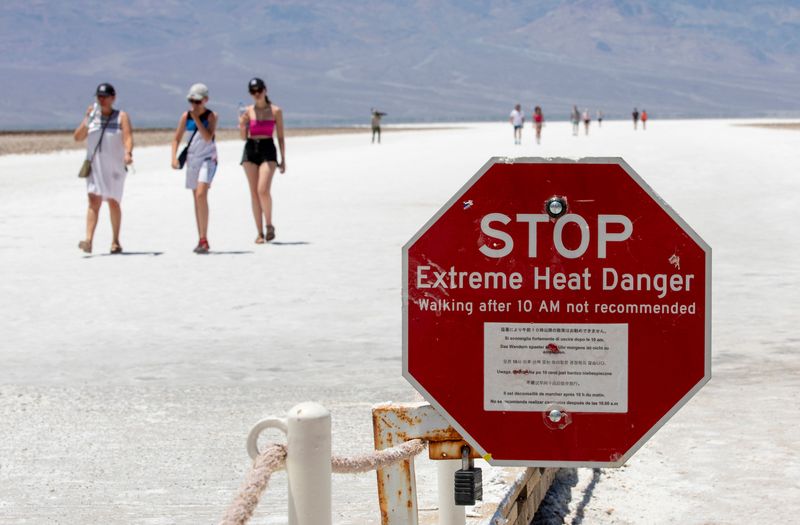
Vegas heat isn’t like other heat. When temperatures hit 115°F with single-digit humidity, your sweat evaporates instantly, tricking you into thinking you’re not overheating until it’s too late.
First-timers often plan outdoor activities during summer days, not realizing that pool decks get hot enough to burn bare feet and metal handrails can cause second-degree burns. Many tourists end up with severe sunburns within hours despite applying sunscreen.
During summer months (May-September), schedule outdoor activities before 10am or after 6pm only. Use the afternoon hours for indoor attractions, shows, or shopping. Apply sunscreen hourly – even if you don’t feel yourself sweating – and wear lightweight, loose-fitting clothes that cover exposed skin rather than revealing outfits.
